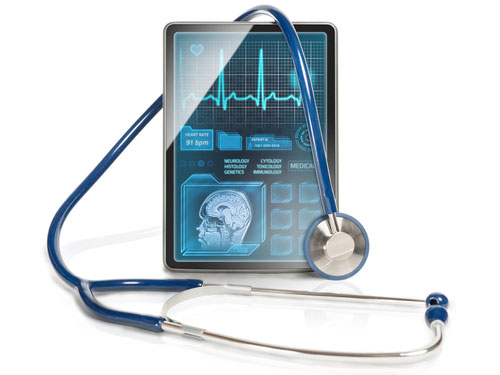Health data may not make your boss ‘app-y
Posted: 27 January 2015 |
Half of UK bosses tempted to snoop on employees health app data to catch them ‘pulling a sickie’…


Fifteen percent of Britons now have a health app, monitoring anything from heart rate, calorie intake, body temperatures and even body movement. But the new wave of smart apps and devices designed to keep us fit and healthy may also land British workers in hot water with their boss, as half (54%) of bosses would snoop on their employees health app data to catch them out ‘pulling a sickie’ if they had the chance, a new survey has found.
The findings come from a survey of 619 UK business leaders for the Astellas Innovation Debatetm 2015, organised and funded by Astellas, which on Thursday 29th January brings together a panel of world-renowned experts at The Royal Institution of Great Britain to discuss the implications for our health of the revolutions in data and DNA .
Of the UK businesses surveyed, 72% said they now either give all or some of their employees a mobile phone. Meanwhile 63% of companies invest in keeping their employees fit and healthy by offering: running clubs and cycle to work schemes (34%), gym memberships (21%) and healthy challenges (7%); to smart watches, health apps and allowances to buy things to keep them fit and health (7%).
However, when UK bosses were asked how likely they would be to look at the health data from an employee’s smart watch or health app — measuring how many steps they took, their heart rate and body temperature — if they called in sick, over half (55%) said they would be very or fairly likely to check the data in order to confirm that the employee was telling the truth.
Unsurprisingly, just 6% of employees would want their boss to have access to any health data generated from a mobile phone or smart watch.1
Commenting on the survey findings, Ken Jones, President and CEO of Astellas Pharma EMEA, who are organising and funding the Astellas Innovation Debate, said:
“At Astellas we take the health and wellbeing of our employees very seriously, and like many of the businesses that we surveyed, we also invest significantly in our workforce to ensure they lead happy and healthy lives.
“In my experience, to have a successful business you need to have confidence and trust in your employees, confidence that they can do their job and trust that they are likely to turn up for work. We’re all in no doubt that new smart health technologies and the insights they provide hold the key to improving the health of people, but at what point does smart data become intrusive surveillance? This is why a debate is needed. ”
The Astellas Innovation Debate: i-Genes – What the DNA and Data Revolutions mean for our Health, will take place on Thursday 29th January 2015 at the Royal Institution of Great Britain. Organised and funded by Astellas, the Debate provides a collaborative platform where everyone can come together to discuss the role of innovation in solving the greatest challenges of our time.
This year’s Debate will be chaired by Jonathan Dimbleby. The panel of world-renowned experts will include: American biologist Dr Leroy Hood, whose leadership led to automated DNA sequencing; human rights activist Baroness Helena Kennedy, QC; Professor Lionel Tarassenko, CBE, Head of Engineering, University of Oxford, and Professor Rolf A. Stahel, President of the European Society for Medical Oncology. They will discuss:
- The possibilities these new genetic insights offer for our health
- Whether we can afford the full range of medicines personalised healthcare would demand
- The implications for health professionals – will a mass of data from new technologies create a new army of the worried well and swamp doctors?
- With more of our health data digitised, how long before it falls into the wrong hands?
- At what point does smart care become intrusive surveillance?
- Whether the effort put into these frontiers of medicine diverts resources from the real crises of modern healthcare – such as obesity, antibiotic resistance and neurodegenerative disease?
For further information, visit www.innovationdebate.com, or join the debate on Twitter (@Astellasinnov8 #iGenes)



